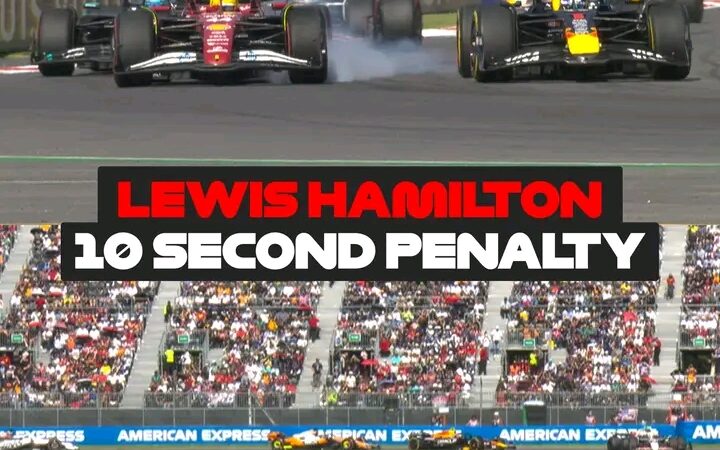Guenther Steiner: I grew up a butcher’s son – it taught me how to fillet a driver

The Haas F1 team boss’s new book, his complicated relationship with Mick Schumacher and the continued growth of the sport in America
Of all the team principals currently active in Formula 1, only Gunther Steiner can turn the story of Miami and the growing popularity of F1 in the United States today into a rhapsody about the cocaine boom and car drug smuggling of the 1980s.
If so, you must have had a great time in Miami! ” exclaimed the German-accented Italian at this weekend’s Grand Prix at the Sunshine State’s “home race”. For Steiner Haas F1 Team in North Carolina.
“Have you ever seen Bad Sport on Netflix?” he asks. “One of the episodes is about a 1980s IndyCar driver (Randy Lanier) who funds his trips to Miami by smuggling drugs.”
Haas’ longtime publicist Stewart Morrison, who was already busy with his own business, looked up from his laptop when he realized the conversation might go wrong. “We’re not going to get involved,” he said, sounding concerned that team bosses were giving the impression that Haas had a new drug sponsor. It’s too late. Steiner is on a roll. “And there were the speedboat guys [Sal Magluta and Willie Falcone, stars of another Netflix documentary, Cocaine Cowboys: Kings of Miami]. There was also a guy from Miami who bought Pablo Escobar’s submarine from Russia. [Ludwig Feinberg]… it was a really crazy time.”
Is Miami Vice real? “Yeah, I talked to people who lived in Miami in the 1980s and everybody knew it. The police found out. They were taken into custody. Everyone had a great time. crazy. Until Reagan stepped in. Yeah, Nancy Reagan ruined everything, you know? Otherwise, I would have had a great time there.”
Steiner laughs. One of F1’s most colorful characters and the unlikely star of Netflix’s F1: Drive to Survive. It’s fair to say that Steiner’s public profile as a team principal is third only to Toto Wolff and Christian Horner.
No one was more surprised than he. We are sitting in the Penguin Random House offices in Vauxhall. Steiner is busy promoting his new book, Surviving to Drive. For two days he was everywhere, on radio and TV, signing copies at Waterstones Piccadilly.
“I woke up one morning and didn’t feel like I was writing a book.”
“They came to me through Drive to Survive,” he says of how the book came about. “I didn’t wake up one morning and think, ‘I’m writing a book.’ “It was another crazy incident.”
Steiner seems to attract them. Or pull a Steiner. His book is not only a diary of the 2022 season, in which he finished 8th for Haas (out of 10 teams), but also a chronicle of his motorsport career in F1 (Jaguar and Red Bull), American motorsport and finally the return to F1. . Again with Haas. There are stories of getting lost in a sandstorm at the Dakar Rally in Libya, of negotiating with a local with an AK47, of being arrested in Monaco while riding with a local kid on a scooter (Morrison had to come to the police station and save him). ) ). Drive to Survive makes liberal use of the F word, which has become its trademark. Steiner actually grew up in Merano, an alpine town in Italy’s South Tyrol region, a million kilometers from Formula 1. He played ice hockey. “I was a goalkeeper,” he says. “I started at a very young age, but I had to quit at a young age because of a conflict with my coach. There’s nothing new here!\” Son of a butcher, Steiner could have followed his father into the family business, but ended up leaving the car racing circus.
“When I buy a cut of meat, I know what I’m looking at,” he says of his remarkable skills these days. “But I couldn’t skin the cow.”
Can he replace a Formula 1 driver? \”lol. may be.\”
Steiner did a bit of that in the last season of Drive to Survive. His treatment of Mick Schumacher was criticized as too harsh. He has no regrets. “Our relationship wasn’t bad,” he said. “It wasn’t good, but it wasn’t bad either. I think there was a lot of criticism because (the fans) didn’t get the success they wanted. They had someone to blame. I was, you know? But I’m here to drive the Haas F1. I’m not here to drive Mick Schumacher. “I always have to do my best for the team,” he said.
The Haas boss has become a laughing stock in F1. He likes to play. The road to survival. In his book. He’s a crazy, stupid, crazy man with a beard and a funny accent. He is very popular with fans who go to the airport to get his autograph or swap faces with Tom Cruise in a Top Gun T-shirt.
F1 CEO Stefano Domenicali astutely says in the foreword to his book: “The Netflix series created a monster that shocked half the world.” The other half may not find him too cute, but they have nothing to show for it. Who needs an apology? F1 needs a hero and he certainly is.
But there is also a serious side. He wants to get his Haas online. “We’re going in the right direction. We’re going up,” he says. “Now everyone has the same budget, so there are no excuses for anyone. Aston Martin has shown what is possible.”
The time is almost up. We talk a bit about the incredible growth of F1 in the United States, about the fact that this country could host the fourth race. Steiner said the sport first needs to “establish itself” in the United States before expanding further, but that could happen in New York. He said he was looking forward to this weekend.
What if we could inject some vice back into Miami? Steiner laughs. “It wasn’t just Miami,” he said, returning to an earlier topic. “Who Was the Driver of the British Touring Car?” Big Lee? He funded his family using gas canisters and cocaine smuggling,” Morrison wrote during the interview.





